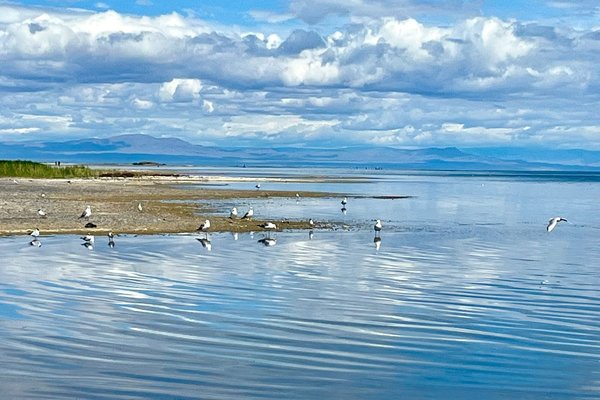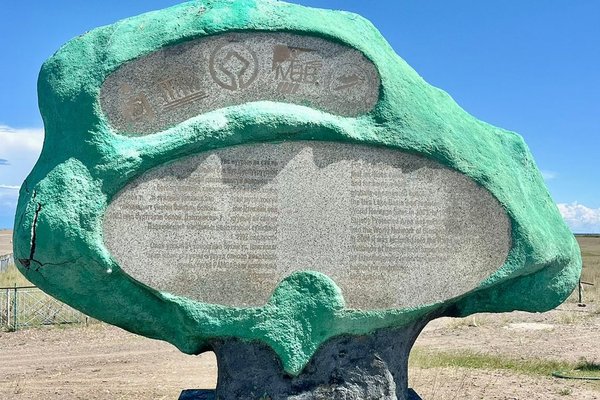Mongolia, Russia
Uvs Nuur Basin
The Uvs Nuur Basin covers a range of diverse ecosystems within the closed catchment of the saline Uvs Nuur lake system.
The landscapes include desert, steppe, forests, wetlands, tundra and high mountain peaks with glaciers. This diversity, combined with the absence of major human impact, is also reflected in a rich variety of plant and animal species. It supports both resident waterfowl and migrating birds. Mammal species found here include snow leopard, mountain sheep (argali), Pallas’s cat and the Siberian ibex.
Community Perspective: This site has been unreviewed so far. It consists of 12 strictly protected areas in Russia’s Tuva Republic and Mongolia.
Site Info
Official Information
- Full Name
- Uvs Nuur Basin (ID: 769)
- Status
-
Inscribed 2003
Site history
History of Uvs Nuur Basin
- 2003: Inscribed
- Inscribed
- 1990: Deferred
- Bureau - Has potential for nomination but make smaller and develop Management plan for crossborder cooperation
- Type
- Natural
- Criteria
- ix
- x
Links
- UNESCO
- whc.unesco.org
- Official
-
- rusnature.info — Ubsunur Hollow Biosphere Reserve
- Related
-
- greenpeace.org — Greenpeace on Uvs Nuur Basin
All Links
UNESCO.org
- whc.unesco.org — whc.unesco.org/
Official Website
- rusnature.info — Ubsunur Hollow Biosphere Reserve
Related Resources
- greenpeace.org — Greenpeace on Uvs Nuur Basin
Community Information
- Community Category
- Natural landscape: Rivers, Wetlands and Lakes
Travel Information
One thousand visitors or fewer
DD : “Controlled and uncontrolled tourism activities are affecting some of the component areas …
Recent Connections
-
Named after a Lake
Uvs Lake, the largest lake in Mongolia -
One thousand visitors or fewer
DD : “Controlled and uncontrolled touri… -
Holocene
During the Holocene, the current ecolog…
Connections of Uvs Nuur Basin
- Geography
-
-
Glaciers
The area has a fifth of Mongolia's glaciers (UNEP-WCMC) -
River deltas
Uvs Lake and Ubsu-Nur include the deltas of the Tesin-Gol and Torkhiologiin-Gol rivers (UNEP-WCMC) -
On a Continental Border
Asia/Europe -
Siberia
-
- Trivia
-
-
In Video Games
Civilization VI: Ubsunur Hollow
-
- Ecology
-
-
Snow leopard
Two of the Mongolian protected areas, Turgen Uul and Tsagaan Shuvuut, are habitats for the endangered Snow Leopard -
Bears
Brown bear -
Bird Migrations
OUV: of major importance for waterfowl, as well as a stepping stone in the bird migration between Siberia and wintering ranges in China and South Asia. -
Salt Flats
Torkhiologiin-Gol delta consists of desert and salt flats (UNEP-WCMC) -
Inselbergs
sculptured granite inselbergs of which Yamaalyg Reserve is one (UNEP-WCMC) -
Strict Nature Reserve
Partly: Uvs Nuur Basin Strict Protected Area in Mongolia. "Environmental and ethnic tourism are beginning to develop. These are based on the scenery such as climbing on glaciated Mount Mongun-Taiga and on the nomadic lifestyle and its artifacts both present-day and historical. … But access to the basin is not easy, and a plan, management, infrastructure and facilities for tourism are not yet in place." (UNEP-WCMC) -
Endorheic Lakes
-
Critically endangered fauna species
Siberian craneSee en.wikipedia.org
-
Taiga
-
Swamps and Marshes
"to diverse wetlands and marshlands, freshwater and saltwater systems" (OUV) -
Otters
common otter (UNEP-WCMC) -
Dunes
desert of fixed and shifting dunes (UNEP-WCMC) -
Steppe
Mongolian-Manchurian Steppe. One of the best remaining natural steppe landscapes of Eurasia (AB ev Saryarka)
-
- Damaged
-
-
Poaching
concerns about poaching, Illegal hunting is of some concern, however, its impact on the population of target species appears low
-
- World Heritage Process
-
-
Ten years or more to inscribe
1990-2003 -
Transboundary sites
-
First inscriptions
Mongolia 2003 (with Russia) -
Slow Starters
1990-2003 : 13 years -
Trans-regional WHS
Europe + Asia and the Pacific region
-
- Human Activity
-
-
Natural sites with indigenous human population
nomadic pastoral use of the grasslands within the basin over thousands of years -
Petroglyphs
At Yamaalig -
Pastoralism
has been used for nomadic pastoralism for thousands of years (crit X)
-
- WHS on Other Lists
-
-
Located in a TCC Territory
Russia in Asia -
Ramsar Wetlands
Lake Uvs and its surrounding wetlands, 2004 -
World Biosphere Reserves
Uvs Nuur Basin (Mongolia, 1997), Ubsunorskaya Kotlovina (Russia, 1997), Uvs Lake Depression Transboundary Biosphere Reserve, Mongolia – Russian Federation (2021) -
Centres of Plant Diversity
CA1 Altai-Sayan - "The more than 550 higher plants include relict species and a number of plants endemic to Mongolia and the Tuva Republic, with five species endemic to the lake basin."
-
- Timeline
-
-
Holocene
During the Holocene, the current ecological "mix" was created.
-
- Visiting conditions
-
-
One thousand visitors or fewer
DD : “Controlled and uncontrolled tourism activities are affecting some of the component areas of this serial site, such as Tore-Khol Lake (IUCN Consultation, 2017) and could cause a negative impact on the natural and cultural values of the site (Schuerholz et al., 2007). However, the opportunities for large-scale tourism in the basin are currently very limited, due to its remoteness and lack of tourism infrastructure.” (IUCN Outlook 2020)
-
- WHS Names
-
-
Named after a Lake
Uvs Lake, the largest lake in Mongolia
-
News
No news.
Community Reviews
No reviews yet. If you have visited, write one!


